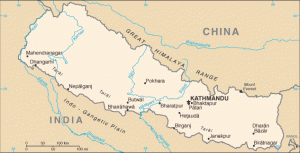Most expecting and new mothers in the US have heard the stories of women across the globe who work in the fields until they have their baby, and then go right back to work. If you’ve heard this kind of story, it’s probably come from an older woman who might think you’re taking your pregnancy or postnatal period a little too easy.
But what’s the true reality of these epic women? A recent BBC article, “Seven Months Pregnant and Working in the Fields”, focuses on a pregnant Nepalese woman and reveals the harsh reality of women who work hard through and after pregnancy.
The article focused on Januka Rasaeli, a Nepalese woman pregnant with her second child. Despite being seven months pregnant, Rasaeli worked her entire waking day, from 6am until 10 pm, engaged in manual labor tasks such as planting, digging, walking livestock to pasture, and cooking over a wood-fired oven.
These duties are typical for a woman in Nepal. Considered to have the lowest social standing in the family, young women of childbearing age are expected to perform the most difficult tasks like tending to crops and livestock.
The social belief that women should preform heavy labor throughout their pregnancy can have negative effects on maternal and neonatal outcomes. Hard manual labor without enough rest and nutrition can cause various problems in pregnancy including:
- Uterine prolapse
- Low birth weight
- Impaired fetal development
- Premature birth
Because the burden is so great on expectant mothers in Nepal, organizations like Save the Children are working with families to teach them that good fetal health is directly linked to good maternal health. By relieving some of the daily tasks of an expectant mother, she may have a better chance of having a healthy baby.
In a country where the infant mortality rate is 24.2% according to UNICEF recent data, a healthy delivery is a big incentive. Extended families, though they may not be too concerned with maternal health, place a higher priority on ensuring a healthy delivery.
The effect is beginning to take hold. While Rasaeli’s husband was working abroad during her last pregnancy, he stayed home this time to help her some with chores and fieldwork. One day he dug holes for Rasaeli while she planted. Normally she would have had to do the digging herself as well.
But hard manual labor isn’t the only obstacle that Nepalese women have in ensuring a healthy delivery. A variety of factors factor into high infant mortality, including:
- Lack of nearby birthing facilities
- Lack of medical oversight during pregnancy
- Inadequate nutrition
The Nepalese government has worked hard to improve maternal outcomes by building birthing centers, paying for births in clinics, and distributing medication to prevent potentially fatal excessive bleeding following birth. The mortality rate in infants and mothers has dropped drastically. In fact, in 1990 the mortality rate in Nepal was 57%.
With such a high current infant mortality rate though, health crusaders in the country hope that they can continue to make progress in dropping mortality rates by continuing to improve maternal health.
While very few women in the United States have to engage in heavy manual labor throughout their pregnancy, the situation in Nepal serves as a reminder of why prenatal health is such a high priority. All expectant and new mothers should put their health and wellness first.
It’s important that pregnant women have the best health care and oversight available to them. At Northern Florida’s All About Women, excellent maternal health care is our passion. Consider our experienced practice of doctors and midwives for your home during pregnancy and beyond.



